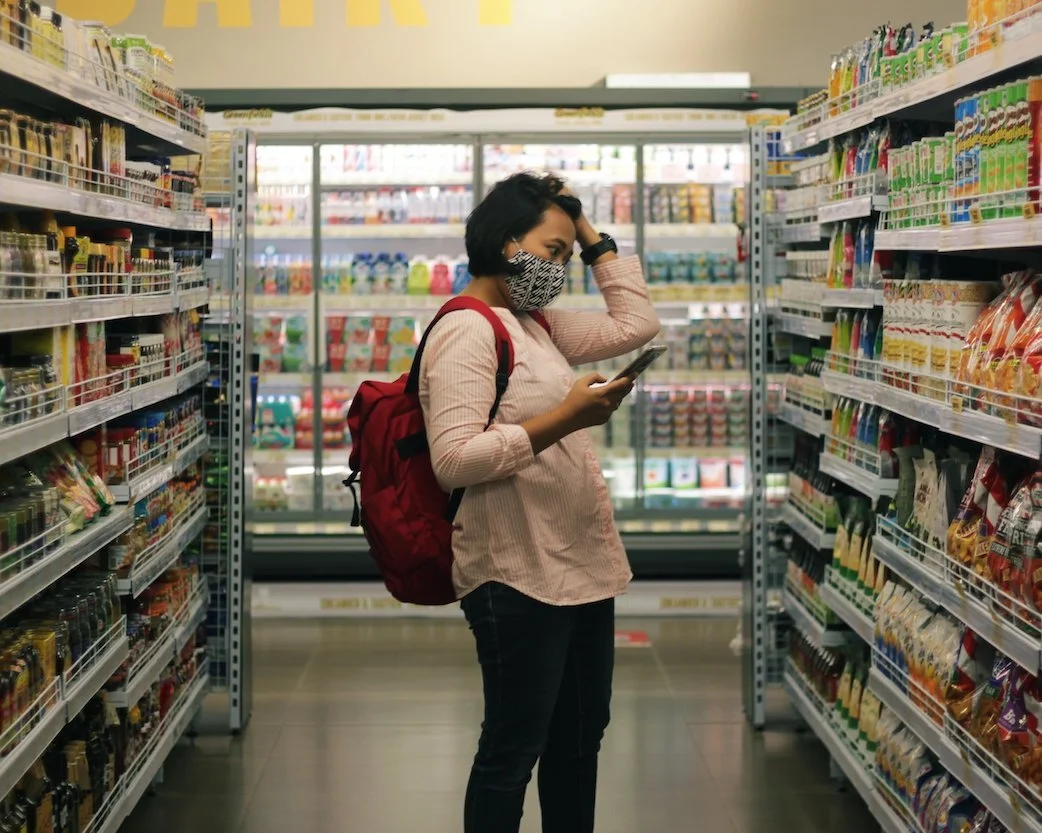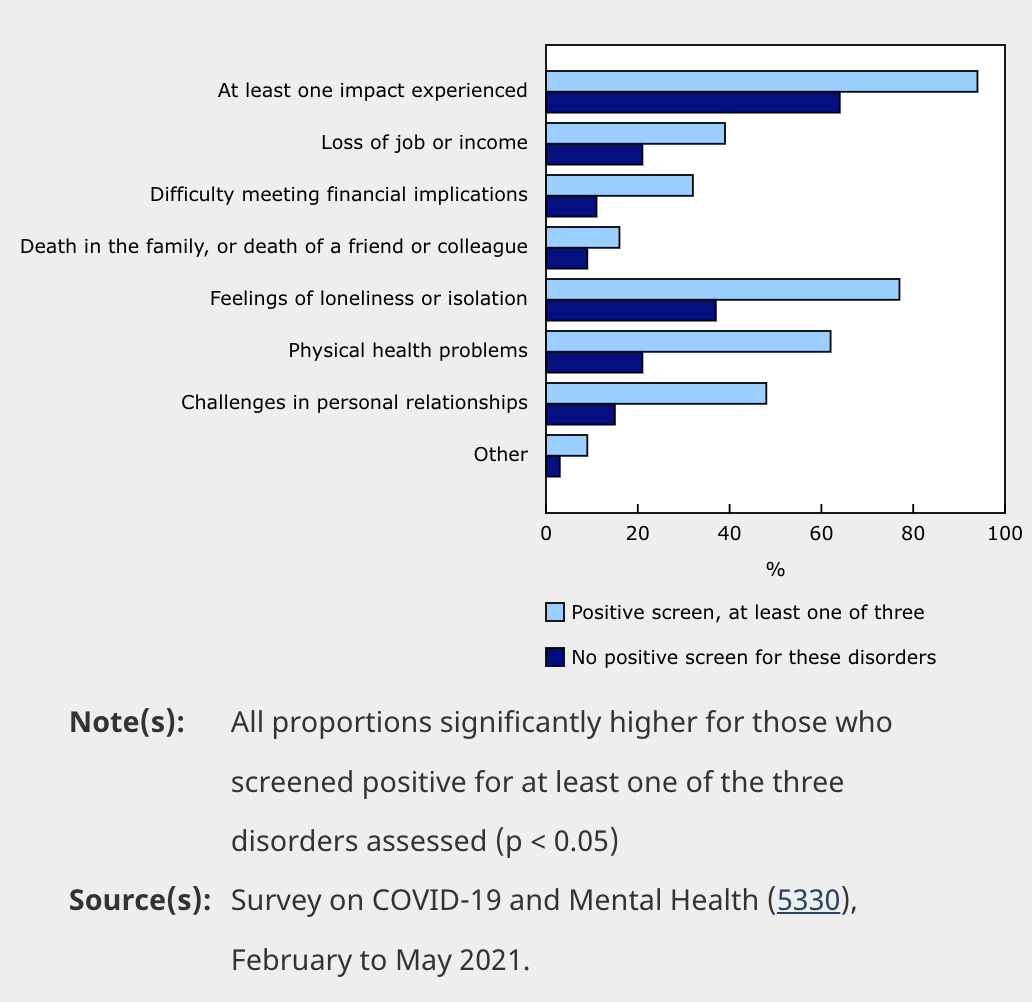Mental Health & Dignified Food Access
By Jenn Elliott
Can you think of a recent interaction with a stranger in public that made your day that much brighter, or maybe an interaction that made your day a bit tougher? On any typical day, our interactions with others and the ways in which we are treated in public spaces can significantly impact how we feel for the rest of the day and beyond. As deeply social and interdependent creatures, humans have an ancient, biological need to feel accepted, cared for, and have a sense of belonging in our closest relationships and as a part of society as a whole [1].
One arena of public space that one might not initially think of when it comes to spaces which bolster feelings of belonging, identity, and well-being are the places we get our groceries. Whether that be a conventional grocery store, a farmer’s market, an independent, culturally-appropriate grocer, or a rescued food market like ours at Food Stash, the way in which that space functions and how we are treated there has an impact on our sense of dignity and worth.
Dignity, defined as “the inherent worth of all human beings, regardless of race, gender, physical or mental state,” is central to psychological well-being, social connection and humanity [2]. As it relates to food security, culture and identity are interwoven into this important conversation around dignity. Culture and identity situates us in our specific social environments and offers a space where we feel a sense of belonging specific to our unique personal background, beliefs, and traditions.
When it comes to food, having the ability to choose what ingredients to cook with, to pass down family stories and history through traditional recipes, and to foster new relationships through a shared meal is incredibly impactful for one’s identity and well-being [3].
A significant barrier to this corner of a person’s identity comes when an individual faces food insecurity, causing that freedom of choice and autonomy towards food to become severely limited.
An interesting 2021 case study conducted by researchers Amy Herrington and Tamara Mix explored this concept of how an individual’s experience with food is related to dignity, and the relationship between dignified food access for individuals facing food insecurity and their overarching sense of identity, social connectedness, and mental well-being [3].
The researchers found three main factors when it came to dignity in food access spaces and cooking practices
-
Participants facing food insecurity reported the highest rates of felt dignity when they were able to relate to others symmetrically, or without a distinct hierarchy, in the food access spaces, whether with other patrons or employees/volunteers.
-
High rates of dignity were also reported when participants could practice their culture and traditions through autonomy and choice in the foods they brought home. Access to culturally-appropriate food enabled participants to follow recipes and cook meals that held cultural and familial significance to them.
-
Finally, participants reported significant dignity shopping in spaces that offered low or no barrier access, such as not requiring I.D. or registration to shop, and offered opportunities for participants to give back if they wished, such as through volunteering.
We find ourselves in an especially challenging era when it comes to the overlap between food security and mental well-being due to the effects of the pandemic. Only 55% of Canadians reported excellent mental health, down from 68% reported before the pandemic [4], with the most commonly reported impact of the pandemic being loneliness and isolation [5] (see graph A). Simultaneously, 1 in 7 Canadians (14.6%) now experience food insecurity, up from 10.5% pre-pandemic [6]. Moreover, increased levels of food insecurity are associated with higher chances of reporting both fair or poor mental health, and moderate to severe anxiety symptoms [7] (see graph B).
Graph B
Based on Herrington and Mix’s research, food access that supports mental well-being are spaces with a welcoming, reciprocal and clean atmosphere that offers the chance for patrons to connect with others, and supports feelings of belonging, identity, and dignity. In turn, these factors are related to decreased feelings of stress, isolation, and shame [3]. These positive and negative feelings increase and decrease, respectively, when these spaces allow patrons the ability to choose culturally-appropriate ingredients that are important to them and their unique backgrounds [3]. Case studies like Herrington and Mix’s [3], along with current statistics showing decreases in mental health [4,5,7] and increases in food insecurity, [6] offer further insight into the importance of food access spaces that offer aid for not only hunger, but mental health challenges such as isolation, shame, and stress too.
Click here to explore the specific steps that Food Stash is taking to promote dignified food access for all.
Want to hear more? Sign up for our newsletter.
Sources:
[1] The Science Behind Our Need to Belong
[2] Dignity in Mental Health Practice & Research
[3] Invisible and Insecure in Rural America
[5] Survey on COVID-19 and Mental Health
[6] How Race and COVID-19 Intersect to Exacerbate Food Insecurity
[7] Food Insecurity and Mental Health During the COVID-19 Pandemic




